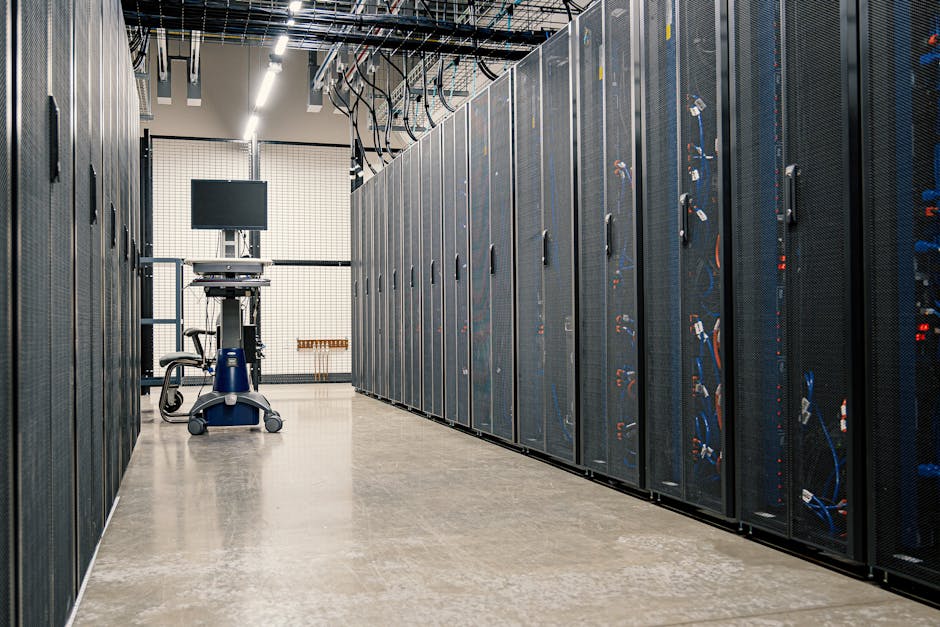From Copper to Fiber: The Revolution of Internet Infrastructure in Africa

From Copper to Fiber: The Revolution of Internet Infrastructure in Africa
From Copper to Fiber: The Revolution of Internet Infrastructure in Africa is an ongoing process that is transforming the way people communicate and access information across the continent. For decades, copper-based networks have been the backbone of Africa’s telecommunications infrastructure, but with the advent of fiber optic technology, the continent is experiencing a significant overhaul of its internet infrastructure.
The shift from copper to fiber is not just a minor upgrade; it’s a fundamental transformation that is enabling faster, more reliable, and more affordable internet access for millions of people. Fiber optic cables have the capacity to transmit vast amounts of data at speeds of up to 100 Gbps, making them ideal for modern applications such as video streaming, online gaming, and cloud computing.
The Challenges of Copper-Based Networks
Copper-based networks have been the primary means of internet connectivity in Africa for many years. However, these networks are plagued by several challenges, including limited bandwidth, high latency, and susceptibility to interference. Copper cables are also prone to theft and vandalism, which can lead to frequent outages and disruptions to service.
In addition, copper-based networks are often unreliable and expensive to maintain. The cost of repairing and replacing damaged or stolen copper cables is significant, and the process can be time-consuming, leading to prolonged outages and frustrated customers.
The Benefits of Fiber Optic Networks
Fiber optic networks, on the other hand, offer a range of benefits that are transforming the internet landscape in Africa. Fiber optic cables are made of glass or plastic and use light to transmit data, making them immune to electromagnetic interference and reducing the risk of outages.
Fiber optic networks also offer much faster speeds than copper-based networks, with the ability to transmit data at speeds of up to 100 Gbps. This makes them ideal for modern applications such as video streaming, online gaming, and cloud computing.
In addition, fiber optic networks are more reliable and require less maintenance than copper-based networks. Fiber optic cables are also more secure, as they are difficult to tap or intercept, making them ideal for applications that require high levels of security, such as financial transactions and government communications.
The Growth of Fiber Optic Networks in Africa
In recent years, there has been a significant growth in the deployment of fiber optic networks across Africa. Several countries, including South Africa, Nigeria, and Kenya, have invested heavily in fiber optic infrastructure, with the aim of providing fast, reliable, and affordable internet access to their citizens.
According to a report by the International Telecommunication Union (ITU), the number of fiber optic connections in Africa increased from 1.2 million in 2010 to 12.4 million in 2020. This represents a growth rate of 933% over the past decade, making Africa one of the fastest-growing regions for fiber optic connectivity.
The growth of fiber optic networks in Africa is being driven by a range of factors, including government investment, private sector investment, and international cooperation. Several international organizations, including the World Bank and the African Development Bank, have provided funding and technical assistance to support the development of fiber optic infrastructure in Africa.
Conclusion
In conclusion, the shift from copper to fiber is revolutionizing the internet infrastructure in Africa, enabling faster, more reliable, and more affordable internet access for millions of people. The benefits of fiber optic networks, including faster speeds, greater reliability, and improved security, make them ideal for modern applications such as video streaming, online gaming, and cloud computing.
As the deployment of fiber optic networks continues to grow across Africa, it is likely that the continent will experience significant economic and social benefits, including improved access to education, healthcare, and financial services. The future of internet infrastructure in Africa is bright, and it is likely that the continent will become a major player in the global digital economy in the years to come.




